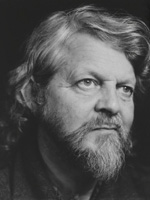|
Alexander George Thynn, 7th Marquess of Bath
Late The Life Guards
by Christopher Joll
formerly The Life Guards
|
 If an unblemished private life, a distinguished military career, and an absence of eccentricity were the sine qua non for inclusion in this section of the magazine, the Editor would have little with which to fill the available space. Fortunately, for readers with an interest in human foibles, they are not. That the late Alexander Bath, who died on 4th April aged 87 after contracting the Covid-19 virus, was the total antithesis of the first and last of these virtues, should not debar him from his recognition as a former Life Guard; even if his only claim to fame as a National Service officer was winning a regimental boxing competition in the welterweight category. If an unblemished private life, a distinguished military career, and an absence of eccentricity were the sine qua non for inclusion in this section of the magazine, the Editor would have little with which to fill the available space. Fortunately, for readers with an interest in human foibles, they are not. That the late Alexander Bath, who died on 4th April aged 87 after contracting the Covid-19 virus, was the total antithesis of the first and last of these virtues, should not debar him from his recognition as a former Life Guard; even if his only claim to fame as a National Service officer was winning a regimental boxing competition in the welterweight category.
As other obituarists have noted, many of Alexander’s ancestors would also have struggled to meet such editorial exclusion tests and, indeed, scored highly when it came to personal eccentricities. Even his father had the dubious distinction, despite gallant wartime service in the Royal Wilshire Yeomanry, of being such a cheer leader for Adolf Hitler that after the war he amassed the largest collection of the depraved dictator’s artistically meritless paintings.
Alexander’s own adult reputation as a flamboyantly dressed aristocrat who advocated polygamy, polyandry, pantheism, pornography, a polymorphous society, and separatist politics was not, however, prefigured by his upbringing and education which, whilst unhappy, were largely conventional. After Ludgrove, where he had a reputation as a bully, Alexander went to Eton, where he was President of Pop and Keeper of Boxing. Following an interval for National Service with The Life Guards, Alexander ended his scholastic education at Christ Church, Oxford, where he read PPE and was President of the Bullingdon Club. Thereafter, following a period at an art school in Paris and to the growing alarm of his father, his life took a distinctly bohemian turn.
Nonetheless, in 1964 the 6th Marquess transferred Longleat House and its 10,000-acre estate and safari park to Alexander. However, unlike other aristocrats, such as the ‘dancing’ 5th Marquess of Anglesey who spent his way through a vast fortune and died bankrupt aged twenty-nine, Alexander took his responsibilities seriously. This did not stop him from covering the walls of the west wing with his own attempts at pornography, nor from housing a growing collection of his girlfriends (known as ‘wifelets’) in some of the estate cottages. Whilst this behaviour was considered by the media to be eccentric in a peer, it pales into insignificance with that of another Life Guard, the reclusive 5th Duke of Portland, who emptied Welbeck Abbey of all its furnishing, painted the entire interior pink and constructed a vast underground ballroom which he never used.
The pornography, wifelets and hippy appearance notwithstanding, whilst Alexander’s reputation as a sexual libertine and sartorial disaster area grew, so too did the commercial success of Longleat – although from the mid-1970s until 1992, when Alexander inherited the marquessate, the house and its attractions were run (on the orders of his father) by his brother Christopher, who had also served in The Life Guards. On the death of the 6th Marquess, Christopher was summarily sacked from this job and ordered off the estate. Nevertheless, Longleat continued to prosper and it would seem that, behind the raffish exterior and the unconventional life style, Alexander Bath was every bit as astute a Thynne as his late Tudor-ancestor, Sir John, who had amassed the estate and built the house in the seventeenth century whilst evading execution, despite several sojourns in the Tower of London.
|
|